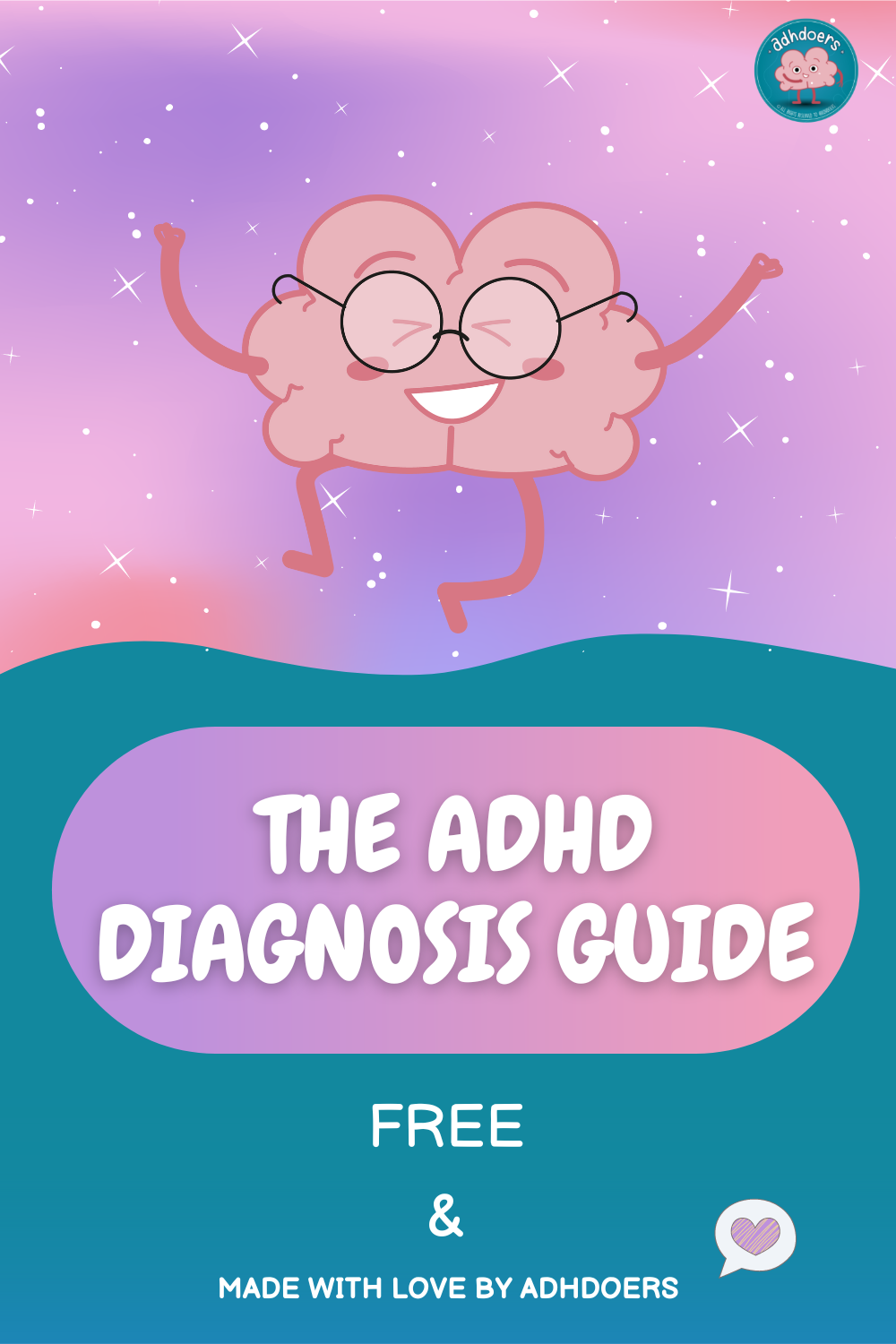Suspecting Adult ADHD? A Guide To Diagnosis And Treatment

Table of Contents
Recognizing the Signs of Adult ADHD
Adult ADHD presents differently than childhood ADHD. While hyperactivity might be less pronounced, inattentiveness and impulsivity remain key symptoms, manifesting in various ways throughout adulthood. Recognizing these signs is crucial for seeking help.
Common Symptoms in Adults
Adult ADHD symptoms often impact daily functioning, relationships, and career success. They can include:
- Difficulty focusing at work or home: Struggling to concentrate on tasks, easily distracted by minor interruptions, and experiencing difficulty completing projects.
- Trouble managing time: Chronic lateness, poor organization, and consistent procrastination significantly impacting productivity.
- Impulsiveness in spending or relationships: Making rash financial decisions or engaging in impulsive behaviors that damage relationships.
- Restlessness and fidgeting: An inability to sit still for extended periods, constant need for movement, and difficulty relaxing.
- Emotional volatility: Experiencing rapid shifts in mood, heightened irritability, and difficulty regulating emotions.
These symptoms can vary in severity and presentation. Some individuals may primarily experience inattentive symptoms (ADHD inattentive type), others primarily hyperactive-impulsive symptoms (ADHD hyperactive-impulsive type), while many experience a combination (combined type ADHD). Understanding these variations is vital for accurate diagnosis and personalized treatment.
Differentiating ADHD from Other Conditions
The symptoms of Adult ADHD often overlap with other conditions, making diagnosis challenging. It's crucial to differentiate ADHD from conditions such as:
- Anxiety: Both anxiety and ADHD can cause restlessness, difficulty concentrating, and irritability. However, the core symptoms of inattention and impulsivity are more characteristic of ADHD.
- Depression: Symptoms like fatigue, difficulty concentrating, and lack of motivation are common to both ADHD and depression. A thorough evaluation is necessary to distinguish between the two.
- Learning Disabilities: While some individuals may have both ADHD and a learning disability, the underlying causes and appropriate interventions differ.
A proper differential diagnosis by a qualified professional is essential to ensure accurate identification of the underlying condition and effective treatment.
The Diagnostic Process for Adult ADHD
Getting a proper diagnosis for Adult ADHD involves a multi-faceted assessment process. Early intervention is key to improving long-term outcomes.
Seeking Professional Help
The first step in addressing Adult ADHD is seeking help from a qualified healthcare professional. This could include:
- Psychiatrist: A medical doctor specializing in mental health who can diagnose and prescribe medication.
- Psychologist: A mental health professional who can provide therapy and conduct psychological assessments.
- Neuropsychologist: A specialist who assesses cognitive functioning and can identify specific cognitive weaknesses associated with ADHD.
These professionals are trained to conduct a comprehensive evaluation, considering your medical history, symptoms, and lifestyle factors. Finding a specialist with experience in diagnosing and treating Adult ADHD is crucial for an accurate and efficient assessment.
Assessment Tools and Methods
Several assessment methods are used to diagnose Adult ADHD, including:
- Self-report questionnaires: Such as the Adult ADHD Self-Report Scale (ASRS), these questionnaires provide valuable information about your symptoms and their impact on your life.
- Clinical interviews: A structured interview with a healthcare professional to discuss your symptoms, history, and challenges.
- Neuropsychological testing: These tests assess various cognitive functions, including attention, memory, and executive function, to identify specific cognitive weaknesses.
The assessment process helps determine the presence and severity of ADHD symptoms and rules out other possible conditions, leading to a comprehensive diagnosis.
Treatment Options for Adult ADHD
Once diagnosed, several treatment options can effectively manage Adult ADHD symptoms and improve quality of life.
Medication Management
Medication is often a significant component of Adult ADHD treatment. Common medications include:
- Stimulant medications: Such as methylphenidate (Ritalin, Concerta) and amphetamine (Adderall, Vyvanse), these medications increase dopamine and norepinephrine levels in the brain, improving focus and attention.
- Non-stimulant medications: Such as atomoxetine (Strattera), these medications work differently than stimulants, targeting norepinephrine levels.
The choice of medication depends on individual needs, preferences, and potential side effects. Close monitoring by a healthcare professional is essential to adjust medication dosage and address any side effects that might arise.
Therapy and Lifestyle Changes
Medication alone may not be sufficient for managing all aspects of ADHD. Therapeutic interventions and lifestyle modifications play a vital role in improving long-term outcomes.
- Cognitive Behavioral Therapy (CBT): CBT helps individuals identify and change negative thought patterns and behaviors that contribute to ADHD-related challenges.
- Organizational strategies: Developing strategies for better time management, task prioritization, and organization of work and personal life.
- Time management techniques: Learning effective techniques for managing time effectively and avoiding procrastination.
- Stress management techniques: Developing coping strategies to manage stress, which can exacerbate ADHD symptoms.
- Mindfulness and meditation: Practices that can enhance focus and attention.
Implementing these lifestyle changes alongside medication can significantly enhance the effectiveness of treatment.
Conclusion
Suspecting you might have Adult ADHD can be overwhelming, but understanding the diagnostic process and available treatments is a crucial first step. This guide provided an overview of the common symptoms, the diagnostic journey, and various effective treatment options for Adult ADHD. Remember, seeking professional help is vital for a proper diagnosis and personalized treatment plan. Don't hesitate to reach out to a healthcare professional if you suspect you or a loved one may have Adult ADHD. Take control of your mental health and start your journey towards a better quality of life by learning more about Adult ADHD and its management.

Featured Posts
-
 Jeff Goldblums Viral Oscar Moment Internet Reaction To His Photo Check
Apr 29, 2025
Jeff Goldblums Viral Oscar Moment Internet Reaction To His Photo Check
Apr 29, 2025 -
 Porsche Cayenne Gts Coupe Test I Recenzja Suv Marzen
Apr 29, 2025
Porsche Cayenne Gts Coupe Test I Recenzja Suv Marzen
Apr 29, 2025 -
 Hollywood Shutdown Double Strike Cripples Film And Television Production
Apr 29, 2025
Hollywood Shutdown Double Strike Cripples Film And Television Production
Apr 29, 2025 -
 Cardinal Maintains Entitlement To Vote In Next Papal Election
Apr 29, 2025
Cardinal Maintains Entitlement To Vote In Next Papal Election
Apr 29, 2025 -
 The Critical Role Of Middle Managers In Bridging The Gap Between Leadership And Employees
Apr 29, 2025
The Critical Role Of Middle Managers In Bridging The Gap Between Leadership And Employees
Apr 29, 2025
Latest Posts
-
 Rising Wildfire Threat Uks Rarest Wildlife On The Brink Of Extinction
May 13, 2025
Rising Wildfire Threat Uks Rarest Wildlife On The Brink Of Extinction
May 13, 2025 -
 Is Bar Roma Worth The Hype A Blog To Toronto Review
May 13, 2025
Is Bar Roma Worth The Hype A Blog To Toronto Review
May 13, 2025 -
 The Impact Of Wildfires On The Uks Rarest And Most Endangered Species
May 13, 2025
The Impact Of Wildfires On The Uks Rarest And Most Endangered Species
May 13, 2025 -
 Bar Roma Your Guide To This Popular Toronto Bar Blog To
May 13, 2025
Bar Roma Your Guide To This Popular Toronto Bar Blog To
May 13, 2025 -
 Extinction Crisis Uk Wildfires Kill And Critically Endanger Rare Wildlife
May 13, 2025
Extinction Crisis Uk Wildfires Kill And Critically Endanger Rare Wildlife
May 13, 2025
